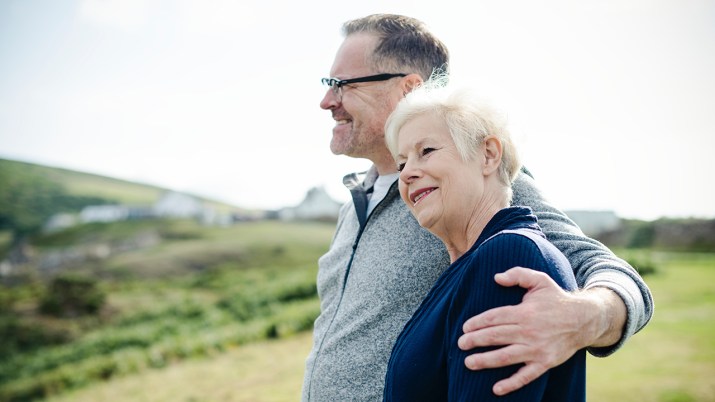by Kaetlin Zink
According to the Centers for Disease Control and Prevention (CDC), around 48 million people get sick every year (1 in 6 Americans), 128,000 are hospitalized, and 3,000 die of foodborne illness or disease — also called food poisoning.
Food poisoning – not to be confused with viral influenza, which can be passed from person to person or contaminated food – can happen to any of us, but some are more vulnerable than others for coming down with a serious illness that could potentially be life-threatening.
So, who is at a higher risk?

Younger children under the age of five- Since their immune systems are still premature and undergoing development, their ability to combat germs is not nearly as strong. Food poisoning can be especially dangerous for this cohort because it can lead to dehydration and diarrhea. In fact, children below five years of age are three times more likely to be admitted to the hospital for a Salmonella infection. The CDC also mentions that kidney failure strikes 1 out of 7 children diagnosed with the E Coli 0157 infection.

Adults who are 65 and older– With age, people’s organs and immune systems begin to lose their ability to pinpoint and fight off germs as effectively as they once could. Of people aged 65 and above, nearly half who have a lab-confirmed foodborne illness, like Salmonella, Listeria, E Coli, and Campylobacter are hospitalized.

People with weakened immune systems from medical conditions or forms of medical treatment- Transplant patients or people with certain illnesses, like HIV/AIDs, cancer, and diabetes are more likely to be affected by various infections from foodborne illnesses. This group tends to have weakened immune systems as a result of the disease process and/or the side effects of treatment.
The U.S. Food and Drug Administration has even found that diabetes may be contributing to a delayed rate at which food travels through the stomach and intestines. Also, research from the CDC has shown that those placed on dialysis– therapy for late-stage kidney failure- are 50 times more susceptible to developing a Listeria infection.

Pregnant women- Not only are pregnant women more vulnerable to certain germs but because bodily effects are so similar, differentiating between symptoms indicative of morning sickness and food poisoning can also be tricky. Signs of food poisoning that require immediate, professional treatment from the doctor include constant diarrhea or vomiting, severe symptoms of dehydration (dry lips, excessive thirst, little to no urine production, or dizziness) striking abdominal pain, fever higher than 101°F, blood or puss in your stool, or black or tarry stools.
Be sure to see your doctor right away if symptoms get to this point, as it can put your baby’s well-being in danger due to their underdeveloped immune systems. Your doctor will then do testing on your blood or stool to determine the cause of your sickness.
This particular group is also thirteen times more likely to develop a Listeria infection, which can surface from things like already prepared meats (hot dogs and cold cuts), unpasteurized food (dairy products), and even foods left in the refrigerator that are cold. Because symptoms can either not show up at all or take a while to appear, the infection could be lingering inside the body and spreading to your unborn baby- which could cause serious problems like paralysis, blindness, and seizures- without you knowing. For this reason, it is of utmost importance that pregnant women be on hyper-alert for any potential infection, especially Listeria.
Emergence of Foodborne Illness and Signs of Severity

Indicators of food poisoning typically show up anywhere from 12 to 72 hours after consuming contaminated food, but can sometimes arise as soon as thirty minutes or as late as four weeks after the fact.
Common signs of food poisoning include things like nausea, vomiting, abdominal pains and diarrhea, as well as flu-like symptoms such as headache, body aches and fever. The CDC recommends going to the doctor if these start to emerge:
- Frequent upheaving
- Diarrhea lasting more than three days
- Fever higher than 101.5°F
- Bloody diarrhea
- Signifiers of dehydration, like dry mouth, dry throat, and dizziness when standing
Food Poisoning Prevention

If you are more susceptible to sickness from food poisoning, the Food and Drug Administration advises avoiding these foods:
- Unpasteurized (raw) milk or products made with raw milk, like cheese and yogurt
- Undercooked or raw meat and poultry, including cold cuts and deli-style meats and unpasteurized, refrigerated meat spreads
- Raw/underdone fish or seafood (shrimp, crab), including refrigerated smoked seafood; raw shellfish (oysters, mussels, scallops, clams) and their juices
- Undercooked/raw eggs or foods containing raw/undercooked eggs, like homemade cookie dough and cake batters, certain kinds of salad dressings (like Caesar, and homemade eggnog (Note: Most pre-made foods from grocery stores are made with pasteurized eggs)
- Unwashed vegetables/unpasteurized fruit or vegetable juices (these juices will have a warning label); raw sprouts (alfalfa, bean, etc.)
Food poisoning can still strike any of us at any given time, so even if you don’t fall under one of the groups placed at an increased risk, it’s wise to keep these tips for prevention in mind.









I have always wondered about cookie dough….